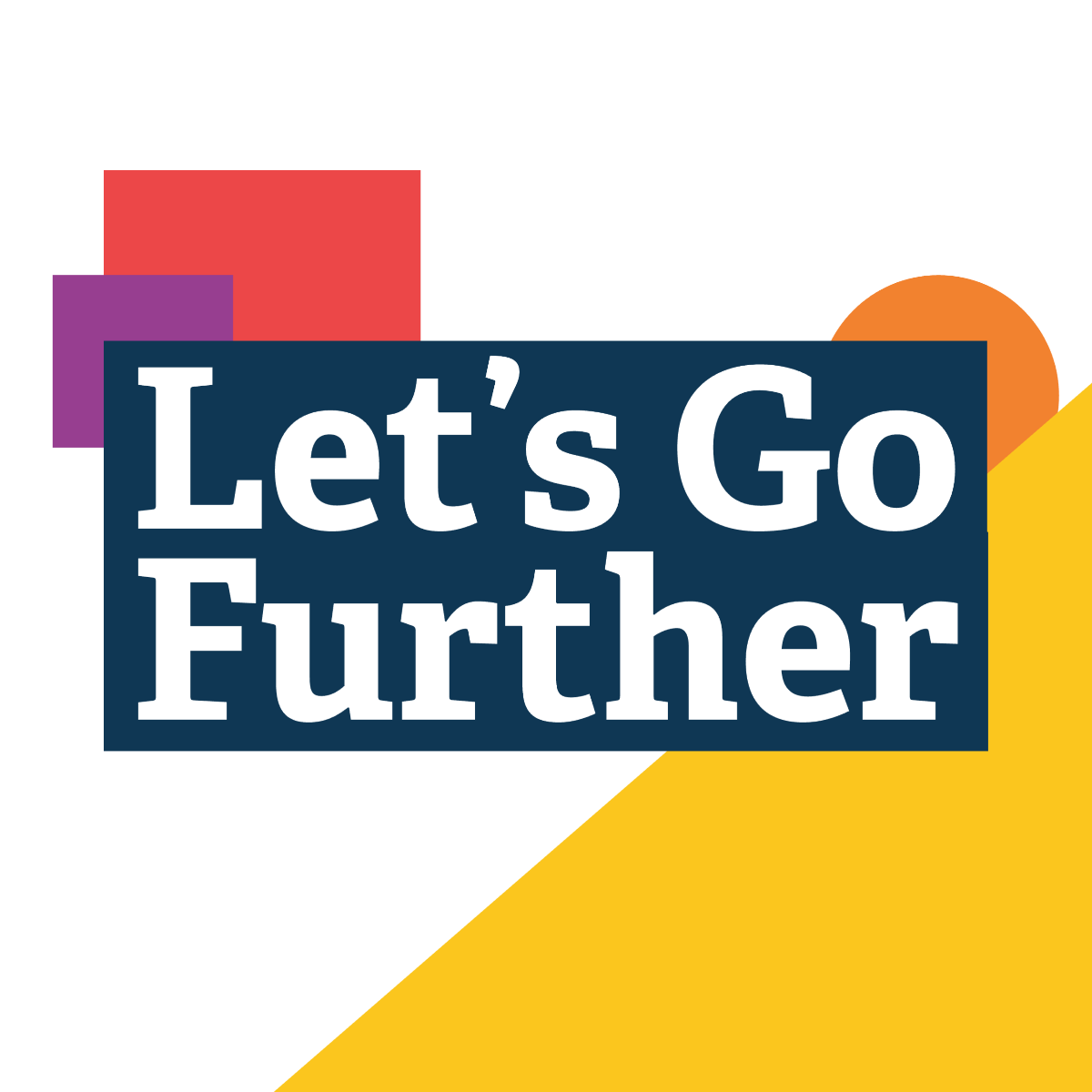The second series of the Let’s Go Further podcast by the Skills and Education Group recently concluded. In this series, the podcast aimed to challenge the way we think about skills and education, and explored the theme of equity, diversity and inclusion.
So, reflecting on Series 2, what did we learn?
Eye-opening perspectives
Each episode provided illuminating insights into what life is like for individuals from different backgrounds. In Episode 1, TV and Radio Presenter Will Njobvu shared his experiences of racism and homophobia growing up as a black, gay young person. He spoke about the microaggressions he endured, such as people telling him “You’re well-spoken for a black person.”
And actually, someone has said to me, 'you're well spoken for a black person'.
Episode 3 with Jake and Hannah Graf MBE provided an opportunity to hear about the journeys of the UK’s most prominent transgender couple. After Hannah came out as trans, her family and colleagues in the army made things easier for her by being “willing to go on the journey with me”, even if they were initially unsure how to support her.
In Episode 6, Jess Phillips MP, Shadow Minister for Domestic Violence and Safeguarding, and Debra Gray MBE, Principal and Chief Executive of Hull College Group, related their personal experiences to the wider discrimination that women face, from Debra being called “bossy” as a young girl to Jess being told not to bother attending a Civil Service Fast Stream assessment because she was pregnant.
Josh Macalister, Executive Chair of Foundations, shared shocking statistics about outcomes for care-experienced people in Episode 7, notably that “you’re 70% more likely to die prematurely, having grown up in care.”
You’re 70% more likely to die prematurely, having grown up in care.
If we’re not inclusive, we all miss out
A recurring theme throughout this series was the benefits that greater inclusion has for everyone.
Debra Gray MBE emphasised the importance of diverse views in the workplace, saying that the most successful leadership teams she has worked in were mixed in terms of gender, socioeconomic background, ethnicity, and other characteristics. Jess Phillips MP echoed this, highlighting the unique caring, empathetic qualities that women possess and that “the importance of having women in your workforce is just the reminder that the vast majority of your customer base will be women.”
Josh Macalister said similar things about care-experienced individuals, saying “they are artists, they get PhDs and become doctors, they are, in some cases, government ministers.”
In Episode 5, Dr Louise Karwowski, Director of Education at Cognassist, explained how “neuroinclusion benefits everybody, not just people with cognitive challenges” because different people can process information in different ways. Furthermore, Paul Eeles, Chief Executive of the Skills and Education Group, said “we as a country have missed out on talented people that have different ways of looking at things”.
[Care-experienced individuals] are artists, they get PhDs and become doctors, they are, in some cases, government ministers.
Food for thought for education and beyond
The series provided a range of ideas for how we can improve equity, diversity and inclusion within both further education and wider society.
Dougie Boyd, Director of Education and Wellbeing at Brook, recommended that FE colleges are supported to develop their own relationships and sexual health education (RSE) curriculum in Episode 2. He also called for policymakers to “dial down the rhetoric” and be “driven by the data”, so that debate around RSE becomes less angry and fevered.
Jake and Hannah Graf gave their advice for how parents can support transgender children, and how educators can support trans students. Hannah said, “The most important thing is for [the trans individual] to get the right level of advice, the right support.” She also said that guidance for education providers on how to support trans learners “must come from a perspective of inclusion” and that “all we’re really asking for teachers to do is to talk to the parents, talk to the children, understand the needs, and just be respectful.”
The most important thing is for [the trans individual] to get the right level of advice, the right support.
In Episode 4, Yvonne Thomas Chief Executive of The Clink Charity, spoke about the charity’s work to break the cycle of reoffending through education. Elements of The Clink’s practice could be applied in schools or colleges; Yvonne said that teaching with a practically grounded approach and showing how skills will be used in a job can be an effective way to engage learners in further education.
Dr Louise Karwowski recommended that learners receive neurodiversity assessments as early as possible so that their “hidden needs” can be brought to the surface and understood.
In Episode 6, Jess Phillips argued for structural changes to reduce women’s caring responsibilities and allow them more opportunities to work or return to education. Debra Gray called for better funding for adult education and more balanced careers education.
I’d love to see a well-funded, valued and coherent adult education system.
Josh Macalister made the case that the care experience should be made a protected characteristic in order to rectify and raise awareness of the disadvantages that care-experienced individuals face.
In the final episode of the series, The Reverend Nigel Genders CBE, Chief Education Officer of the Church of England, outlined the Church’s ambitions for education. He spoke about their long-term aspirations to engage more with FE colleges, as part of a wider mission to be “deeply Christian serving the common good” – enabling not just learners, but the wider community to flourish.
We hope you learned something new through this series and that it has got you thinking about the connections between education, inclusion and wider society.
Let’s go further together
You can find all episodes of Let’s Go Further on our website, Spotify, Apple Podcasts, or wherever else you receive your podcasts.
Stay tuned for Series 3, which will be here before you know it. Follow our social media channels to be the first to hear about all things Let’s Go Further. You can find us on Twitter @SkillsEduGroup or on LinkedIn.
What did you think of Series 2? We’d love to hear your feedback. Drop us a message on social media or email media@skillsedugroup.co.uk.
Listen to Series 1 and Series 2 of Let’s Go Further
Tune into Series 2 of Let's Go Further and listen back to Series 1.
Let's Go Further together!






